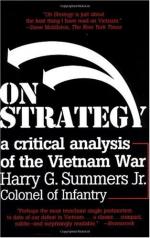|
This section contains 5,689 words (approx. 19 pages at 300 words per page) |

|
SOURCE: "'What's It Going to Be Then, Eh?': The Stage Odyssey of Anthony Burgess's A Clockwork Orange," in Modern Drama, Vol. XXXIV, No. 1, March, 1991, pp. 35-48.
In the following essay, Hutchings discusses the stage adaptations of A Clockwork Orange, focusing on the two written by Burgess.
Since its publication in 1962, A Clockwork Orange has remained Anthony Burgess's best-known and most controversial work, distinguished not only by his stylistic virtuosity in creating the polyglot, pun-riddled teenage slang in which the novel is written but also by the vividness of the violence-wracked dystopian society within which Alex, the book's narrator and protagonist, thrives. Yet even within the tradition of disaffected adolescent narrator/protagonist/anti-heroes—ranging from Huckleberry Finn to Holden Caulfield to Smith in Alan Sillitoe's The Loneliness of the Long-Distance Runner—Alex is decidedly an extreme and appalling case: the leader of a teenage gang, he is a...
|
This section contains 5,689 words (approx. 19 pages at 300 words per page) |

|


